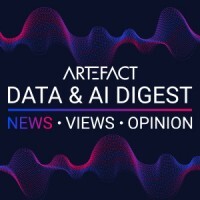AI: These conditions must be put in place to really gain in productivity
In this article, Vincent Luciani, co-founder and Executive Chairman of Artefact, emphasizes that artificial intelligence (AI) must be concretely integrated into a company's collective processes, if it is to deliver real productivity gains. The entrepreneur will be taking part in the MKIA, an event organized by Maddyness and dedicated to AI, at the Salle Gaveau in Paris, on Tuesday April 29.















